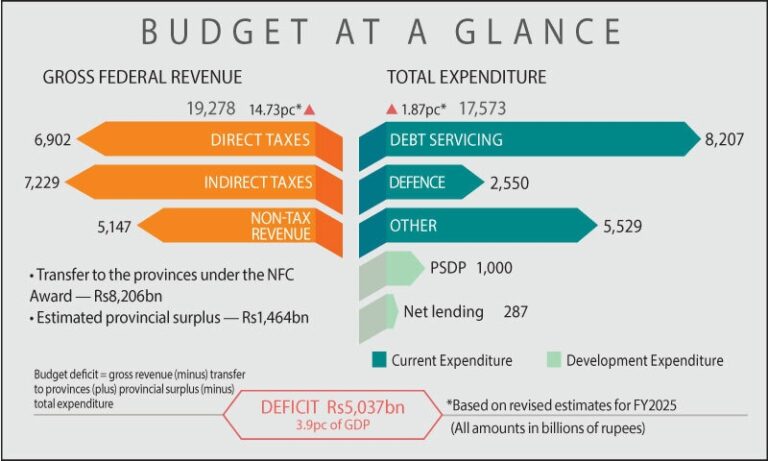Key Benefits of Custom Software Development Over Off-the-Shelf Solutions
The fundamental question facing executive leadership teams in today’s hyper-competitive business environment extends beyond mere technology selection to strategic positioning: should organizations accept the constraints of standardized software solutions or invest in Custom Software Development that creates proprietary competitive advantages? This decision increasingly determines whether technology serves as a strategic differentiator or becomes a commodity constraint that limits organizational potential and market positioning.
The proliferation of off-the-shelf software solutions has created a false economy where apparent cost savings mask hidden expenses related to customization limitations, integration complexities, and competitive disadvantages that compound over time. Organizations that recognize software as strategic infrastructure rather than operational expense discover that custom development provides superior long-term value through competitive differentiation, operational optimization, and intellectual property creation that appreciates with business growth.
Strategic Differentiation Through Proprietary Technology Assets
Off-the-shelf solutions inherently commoditize business processes by forcing organizations to operate within predetermined functional boundaries that competitors using identical software also face. This standardization eliminates opportunities for operational innovation while creating competitive parity that shifts differentiation to other factors such as pricing, marketing, or customer service rather than fundamental operational excellence.
Custom software development enables organizations to encode their unique value propositions, operational methodologies, and competitive strategies into technology platforms that become increasingly difficult for competitors to replicate. These proprietary systems create sustainable competitive moats while providing platforms for continuous innovation and optimization that standard software cannot accommodate.
The intellectual property value of custom software appreciates over time as organizations refine functionality, optimize performance, and expand capabilities based on market learning and operational experience. This appreciation contrasts sharply with off-the-shelf software where organizations remain dependent on vendor roadmaps and pricing decisions that may not align with business objectives or strategic priorities.
Market leaders across industries have discovered that custom software enables business model innovation that would be impossible within standard software constraints. These innovations often become fundamental competitive advantages that define market positions while creating barriers to entry that protect market share and pricing power.
Operational Excellence and Process Optimization
Standard software solutions require organizations to modify their processes to accommodate software limitations, often introducing inefficiencies and workarounds that reduce productivity while increasing operational complexity. These process modifications typically represent compromises that prevent organizations from achieving optimal performance levels in critical business functions.
Custom software reverses this dynamic by enabling software to support optimal business processes rather than constraining them within predetermined workflows. This alignment creates immediate efficiency gains while providing foundations for continuous process improvement that compounds productivity advantages over time.
Integration capabilities represent another critical advantage where custom software can be designed with native connectivity to existing business systems, eliminating the complex middleware solutions and data transformation processes that off-the-shelf software often requires. These seamless integrations reduce operational overhead while improving data accuracy and real-time visibility across business functions.
The ability to optimize user interfaces and workflows for specific organizational requirements significantly improves user adoption and productivity metrics compared to generic interfaces designed for broad market appeal. Custom interfaces can eliminate unnecessary complexity while emphasizing functions that drive business value, creating user experiences that enhance rather than hinder operational efficiency.
Scalability and Future-Proofing Advantages
Off-the-shelf software often becomes a constraining factor as organizations grow because scaling typically requires additional licensing costs, performance limitations, or migration to more expensive enterprise versions that may not provide proportional value increases. These scaling challenges can create competitive disadvantages during critical growth phases when operational agility becomes essential.
Custom software can be architected with specific scalability requirements that align with business growth projections and market expansion plans. This forward-looking approach ensures that technology investments support rather than constrain growth while providing cost-effective scaling that maintains profitability during expansion phases.
The flexibility to adapt and enhance custom software based on changing market conditions provides strategic agility that standard software cannot match. Organizations can respond quickly to competitive threats, regulatory changes, or market opportunities without waiting for vendor updates or compromising with inadequate functionality.
Future technology integration becomes significantly easier with custom software that can be designed with modern architectural patterns and API-first approaches that facilitate connection with emerging technologies and services. This integration capability ensures that software investments remain relevant and valuable as technology landscapes evolve.
Total Cost of Ownership Optimization
While off-the-shelf software appears less expensive initially, comprehensive total cost of ownership analysis often reveals that custom solutions provide superior financial returns over multi-year periods. Hidden costs in standard software include customization limitations, integration expenses, licensing escalations, and productivity losses from process modifications.
Licensing cost predictability represents a significant advantage of custom software where organizations own their technology assets rather than renting functionality from vendors who may change pricing, terms, or strategic directions without customer input. This ownership provides long-term cost stability while eliminating vendor dependency risks.
Maintenance and enhancement costs for custom software typically decrease over time as organizations develop internal expertise and optimize operational procedures. Conversely, off-the-shelf software maintenance costs often increase through vendor price escalations and forced upgrade cycles that may not provide proportional business value.
The elimination of per-user licensing models in custom software enables organizations to scale user access without incremental costs, providing significant savings for growing businesses while removing artificial constraints on software utilization that can limit business growth and operational efficiency.
Data Ownership and Analytics Advantages
Custom software provides complete control over data collection, storage, and analysis capabilities that enable proprietary business intelligence and competitive insights impossible with standard software solutions. This data ownership creates strategic advantages through superior market understanding and operational optimization opportunities.
Analytics and reporting capabilities can be tailored to specific business requirements and key performance indicators rather than accepting generic metrics that may not align with strategic objectives or operational needs. Custom analytics often provide actionable insights that standard software reporting cannot deliver effectively.
Data integration and warehouse capabilities enable comprehensive business intelligence that combines information from multiple sources into unified analytical platforms. These capabilities support strategic decision-making while providing competitive advantages through superior market understanding and operational insights.
Privacy and compliance control becomes significantly easier with custom software where organizations can implement specific data protection measures and regulatory compliance controls without depending on vendor implementations that may not meet specific industry or jurisdictional requirements.
Innovation Enablement and Competitive Positioning
Custom software enables rapid experimentation and innovation cycles that can create breakthrough competitive advantages while standard software constrains organizations to vendor-defined functionality and innovation timelines. This innovation capability becomes increasingly important in rapidly evolving markets where competitive advantage depends on operational agility and technological differentiation.
The ability to implement emerging technologies such as artificial intelligence, machine learning, and automation within custom software provides first-mover advantages that can define market positions before competitors recognize opportunities. Standard software vendors typically lag market trends by months or years due to broad market considerations and development cycles.
Partnership and acquisition integration becomes significantly easier with custom software that can be modified to accommodate new business relationships, operational requirements, or strategic initiatives. This flexibility enables organizations to pursue growth strategies without technology constraints that might limit strategic options or integration success.
Industry-specific functionality can be implemented within custom software to address unique requirements that generic software cannot accommodate effectively. For example, organizations working with Shopify Plus development experts can create specialized e-commerce capabilities that provide competitive advantages unavailable through standard platform features.
Risk Management and Business Continuity
Vendor dependency risks associated with off-the-shelf software include potential business failures, strategic direction changes, pricing modifications, and discontinued support that can create operational disruptions and force expensive migration projects. Custom software eliminates these dependencies while providing complete control over technology roadmaps and enhancement priorities.
Business continuity planning becomes more straightforward with custom software where organizations control source code, documentation, and operational procedures rather than depending on vendor support and maintenance services that may not align with business continuity requirements or timeline needs.
Security control represents another critical advantage where custom software can implement specific protection measures and compliance controls rather than accepting vendor security implementations that may not meet organizational requirements or industry standards.
Conclusion
The strategic choice between custom software development and off-the-shelf solutions fundamentally determines whether technology serves as competitive differentiator or operational constraint. Organizations that recognize software as strategic infrastructure rather than commodity expense discover that custom development provides superior long-term value through competitive advantage creation, operational optimization, and intellectual property development.
Success requires treating custom software investment as strategic business capability development rather than technical project execution, demanding executive leadership commitment and comprehensive planning that aligns technology capabilities with long-term business objectives and competitive positioning goals.Devsinc combines deep technical expertise with strategic business understanding to deliver custom software solutions that create sustainable competitive advantages while optimizing operational efficiency and enabling innovative business model development in dynamic market environments.







